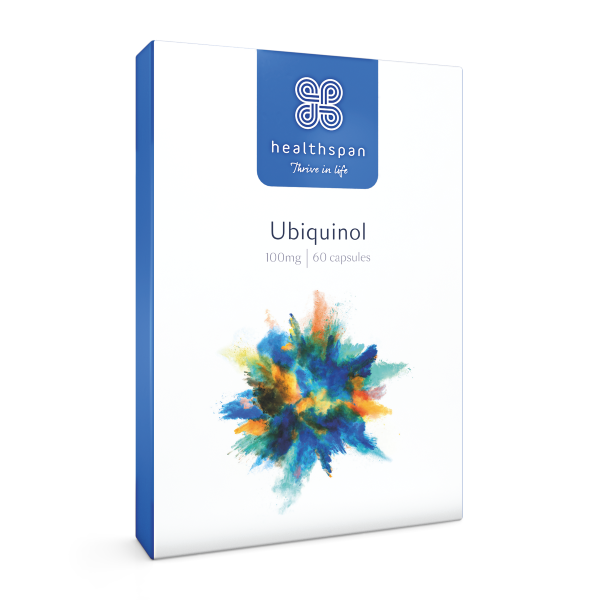Healthy mitochondria may help us age well and protect against disease. And there's plenty we can do to keep them firing on all cylinders, says Karen Evennett.
🕒 5 min read
The term mitochondria pops up frequently these days. But do you know what it means? Nearly all our body's cells contain these tiny rod-shaped structures, which are often described as cellular powerhouses.
And, just as batteries store electricity to charge our mobiles and other devices, so mitochondria provide the energy that powers our muscles and allows our hearts to beat, our lungs to function and our guts to digest.
"Essentially, mitochondria convert oxygen and nutrients from the air we breathe and the food we eat into the energy needed to power life," explains nutritionist Ray Griffiths, of the College of Naturopathic Medicine and author of Mitochondria in Health and Disease (Singing Dragon).
What do mitochondria do?
"Mitochondria are infinitely small sausage-shaped sub-compartments – or organelles – found inside cells," says Gilian Crowther, Director of Research at the Academy of Nutritional Medicine, who also specialises in mitochondria.
How they produce energy is a fiendishly complex process, but the most important part is via something called the electron transport chain. "Energy is passed down to a small 'motor' that chugs out a chemical called adenosine triphosphate, the energy currency of our cells," explains Gilian.
More than just energy
But that's not all. "Recently, we've begun to realise that mitochondria do much more than simply produce energy," says Ray.
They also serve as middlemen between our external and internal environment by producing messenger chemicals, clearing away and recycling waste materials and acting as cellular hit men tasked with ordering the destruction of damaged or worn-out cells.
Indeed, research now suggests that how well our bodies function, the efficiency of our brain and immune system, our longevity and even how fast we age are all crucially related to how our mitochondria perform.
Mitochondria rely on oxygen to carry out their many duties, but this can come at a cost in the form of unstable molecules called reactive oxygen species (ROS), also known as free radicals. The body needs some ROS to pass messages between cells, but high levels can result in a gradual loss of function.
"This can affect how well we age and cause or worsen many diseases that affect us as we get older," says Ray. Poorly functioning mitochondria are also thought to be behind the tiredness and lack of energy that accompany many diseases, the weariness we feel when recovering from an illness or infection, and chronic fatigue syndrome.
As another expert writing in the journal Environmental Health Perspectives tellingly puts it: "When mitochondria falter, cells lose power, just as a flashlight dims when its batteries weaken."
A whole range of stressors – air pollution, diesel fumes, excess alcohol, smoking, poor sleep, a diet high in saturated fat and sugar, overeating, overexposure to the sun, depression, anxiety and anger, as well as social factors such as job loss or relationship breakdown – play a role in mitochondrial dysfunction.
So, too, may certain medications. Some side-effects of statins, such as muscle pain, weakness, stiffness and cramps may be linked to mitochondrial damage.
The role of coenzyme Q10
The body has its own damage-limitation mechanisms. Coenzyme Q10, for example, also known as ubiquinol in its body-ready form, is an essential component of the electron transport chain, while alpha-lipoic acid, a naturally occurring short-chain fatty acid, aids the action of enzymes involved in that chain.
As we age, we become more susceptible to the damaging effects of environmental stressors and these inbuilt protective mechanisms then don't work as well. But see below for ways to keep our mitochondria healthy.

Ubiquinol (CoQ10)
High-absorption form of coenzyme Q10 with vitamin B1 to support your heart health and energy metabolism
- 100mg ubiquinol, the most absorbable form of coenzyme Q10
- Coenzyme Q10 is needed for energy production in cells
- Vitamin B1 contributes to metabolism and nervous system function
How to nurture your mitochondria
A good diet, stress management and a healthy lifestyle are just some of the things that can keep your mitochondria in top condition.
Junk the junk
Junk foods high in sugar and 'bad' fats can affect mitochondrial size and function in the liver, increasing the risk of insulin resistance – a forerunner of type 2 diabetes.
Consider a supplement
Coenzyme Q10 (ubiquinol) and alpha-lipoic acid (ALA) can support the function of your mitochondria by aiding energy production and protecting cells from oxidative damage.
Find out more in our guide to CoQ10 and ubiquinol.
Enjoy a cup of coffee
At last some good news about caffeine. It has antioxidant properties and can boost mitochondrial energy production in the liver, at least in animals, according to a recent study.
Mind your Bs
Deficiency of B vitamins has been linked to mitochondrial dysfunction, immune dysfunction and inflammatory conditions. Find your Bs in whole grains, meat, poultry and fish, eggs and dairy products, beans, lentils, nuts, seeds, dark leafy vegetables, citrus fruits, avocado and bananas.
Choose healthy fats
Long-chain omega 3 fatty acids, found in oily fish such as herring, mackerel, salmon and sardines, have been found to help protect against mitochondrial dysfunction in the ageing brain – at least in animals. Vegetarian? Plant-based omega-3 fatty acids such as alpha-linolenic acid found in nuts are also neuroprotective, according to studies.
Eat the rainbow
Polyphenols – plant chemicals found in food – may help to enhance chemical 'pathways' involved in energy production. The most studied include quercetin, found in onions, garlic and apples, resveratrol, found in grape skins and red wine, and curcumin, found in the yellow spice turmeric.
Go organic
Limit the effects of pesticides and other chemicals used in food production by choosing organic fruit and vegetables and, if you are a carnivore, meat from grass-fed, organically reared animals.
Clean up your act
Gilian Crowther advises avoiding colourings and preservatives in food and cutting down on the use of potentially mitochondrial-damaging household chemicals such as bleach and harsh detergents.
Manage stress
Toxic stress – severe, long-term stress over which you have no control – increases the body's energy demands and has been linked to the development of physical and mental health problems. The secret is to manage it by taking time out for yourself, seeing friends, doing something you enjoy and, if necessary, seeking professional help.
Read more: The benefits of CoQ10 and ubiquinol
CoQ10 is vital for energy production, as well as the health of your heart and brain. Find out why, and how a supplement may help.
Read more








